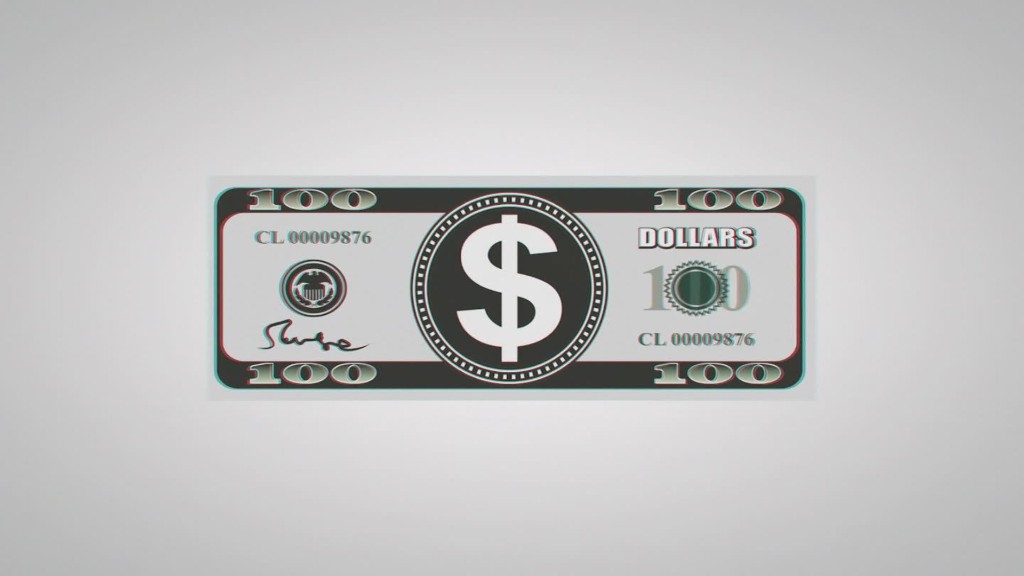
Time to book that long overdue trip to Italy, France or Spain?
The dollar is inching closer and closer to being worth the same as one euro. The last time that happened was 13 years ago.
So will the dollar really reach parity with the euro anytime soon?
And if so, what does that mean for consumers, businesses and investors?
Why the dollar has rallied
The dollar has surged against the euro -- and most other global currencies for that matter -- this year.
The U.S. Dollar Index, which measures the dollar versus the euro, Japanese yen, British pound, Canadian dollar, Swedish krona and Swiss franc, is up nearly 10% so far in 2015.
The main reason? Economic conditions in the United States are better than Europe and Japan. The value of a nation's currency typically rises and falls along with its economy.
Related: Mario Draghi ready to throw more money at Europe's economy
As a result, the Federal Reserve is likely to soon hike interest rates ... even as the European Central Bank and many other global central banks have been cutting rates.
The dollar picked up even more steam Friday after a solid United States jobs report boosted the chances that the Fed may raise rates next month.
Where things stand now
The euro is currently worth about $1.07. So it still has a ways to go before it reaches $1 on the nose.
But keep in mind that at this time a year ago, for each euro you got around $1.24.
The plunge in the value of the euro has been stunning. And it doesn't look like it's over just yet.
Greg Valliere, chief global strategist with Horizon Investments, wrote in a report Monday that the Fed may need to raise rates several times next year if the unemployment rate, now at 5%, continues to fall.
"The likelihood of a steeper path of rate hikes is now on the table — and that is a very, very big story for the dollar, which may be headed for parity with the Euro," he wrote.
Related: Strong hiring drives unemployment rate to 5%
Boris Schlossberg, managing director of foreign exchange strategy for BK Asset Management, said that it may be "premature" to think the euro and dollar will reach parity in the near future.
But he conceded that momentum is definitely on the side of the greenback.
"Certainly there is good reason to think that the euro goes lower given the very clear divergence between US and EU monetary policies," he wrote in a report Monday.
Good for U.S. shoppers and travelers ... bad for big U.S. companies
The strong dollar makes the price of imported goods cheaper in the United States.
It also is advantageous to any Americans traveling abroad. The dollar has more purchasing power.
But the strong dollar is not good news for large corporations with a big international presence.
It also hurts U.S. firms that benefit when foreign travelers are doing their best Eddie Murphy and Arsenio Hall impersonation and are coming to America. ("Mortimer! We're back!")
Just look at online travel agency Priceline (PCLN) on Monday. Shares tumbled nearly 10% after the company issued an earnings outlook that was below forecasts.
The strong dollar was one of the main culprits.
During a conference call with analysts, Priceline CEO Darren Huston said its domestic travel business has been strong and that Chinese travelers are still taking many trips to the U.S.
But he added that "generally almost everyone else is going a little less to the U.S. because of the currency effect."
Priceline is the latest multinational to fall victim to the dollar's strength.
But it's not the only one. The mighty dollar has hurt Coca-Cola (KO), IBM (IBM), Caterpillar (CAT) and Procter & Gamble (PG) this year.
That's something the Fed is going to have to watch closely before it decides to raise rates.
Related: China slashes interest rates again
While many economists and Wall Street strategists now think a rate hike is all but certain at the Fed's next meeting in December, investors shouldn't ignore the role the dollar may play in the decision.
The Fed has been noting that net exports have been "soft" in every statement since June. Translation: The strong dollar is hurting Corporate America.
An eventual rate hike should boost the dollar further, especially if the ECB, the People's Bank of China and others continue to cut rates.
"The strong dollar is a constraint for the Fed. These are currency wars ... even if they are unspoken," said Gary Cloud. a manager of the Hennessy Equity and Income Fund.
-- CNNMoney's Matt Egan contributed to this report.


